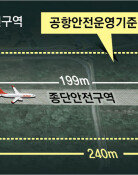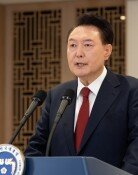Cooperation Between the Gov`t & the Opposition
Cooperation Between the Gov`t & the Opposition
Posted September. 25, 2010 10:51,
Consultations between government officials and ruling party members are being held on legislative issues. This is to coordinate opinions on bills between the administration and the ruling party before they are submitted to the National Assembly. Under a directive of the prime minister, the government can make consultations with not only the ruling party but also opposition parties. Excluding unique cases such as the absence of a ruling party as seen in 2007, when then President Roh Moo-hyun left the then ruling Uri Party, consultations are generally held between the government and the ruling party.
For the first time since President Lee Myung-bak took office, the government will hold a policy coordination meeting with the main opposition Democratic Party Friday. After the ruling camp agreed to discuss disputed matters with opposition parties at a meeting of the party, government and presidential office on Sept. 12, the Democratic Party also suggested the government hold a consultation with it. The meeting should serve as a venue to narrow differences between the government and the opposition party over national issues. The meeting will give the Democratic Party the opportunity to have candid conversations with the government, something which has proven futile in parliament. The meeting will also help the government remove grounds for useless disputes before parliamentary deliberation on the national budget.
Good intentions do not always guarantee good results, however. Given that the ruling and opposition parties are racing to present policies for the working class, the Democratic Party is likely to focus on budget requests for populist policies at the consultation, which will be joined by the party`s policy planning committee and economy-related ministers. The Democratic Party will do everything it can to block the four-river restoration project, saying the money saved by scrapping the project will help secure the necessary budget for working class-friendly policies, including funds for flood damage recovery. If the government engages in political attacks and is swayed by populism at the meeting, the budget plan will be in tatters and important issues will not reach parliament.
Both the government and the Democratic Party have the responsibility to hold the consultation with sincerity based on the perception that they are partners in administering state affairs. This, however, does not mean that the government and the ruling Grand National Party can delegate their responsibility for administration to the opposition party or hold it accountable for policy failures. The government and the ruling party must responsibly carry out state affairs until their term ends. Based on what they have achieved in their term, the people will decide if they deserve another term in the next presidential election. This is the principle of responsible politics. The government and the ruling party bear endless responsibility for state affairs.
Editorial Writer Park Seong-won (swpark@donga.com)






